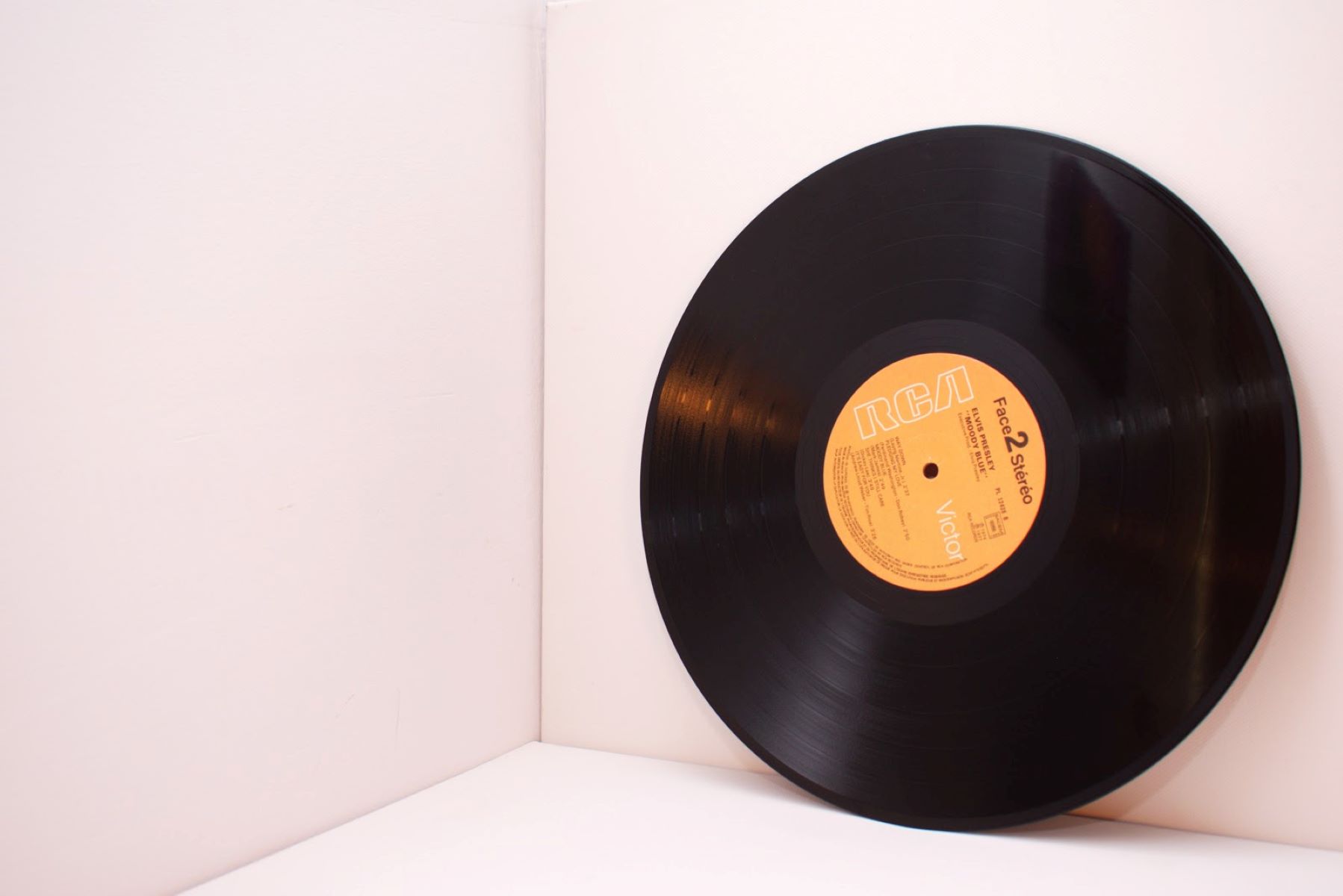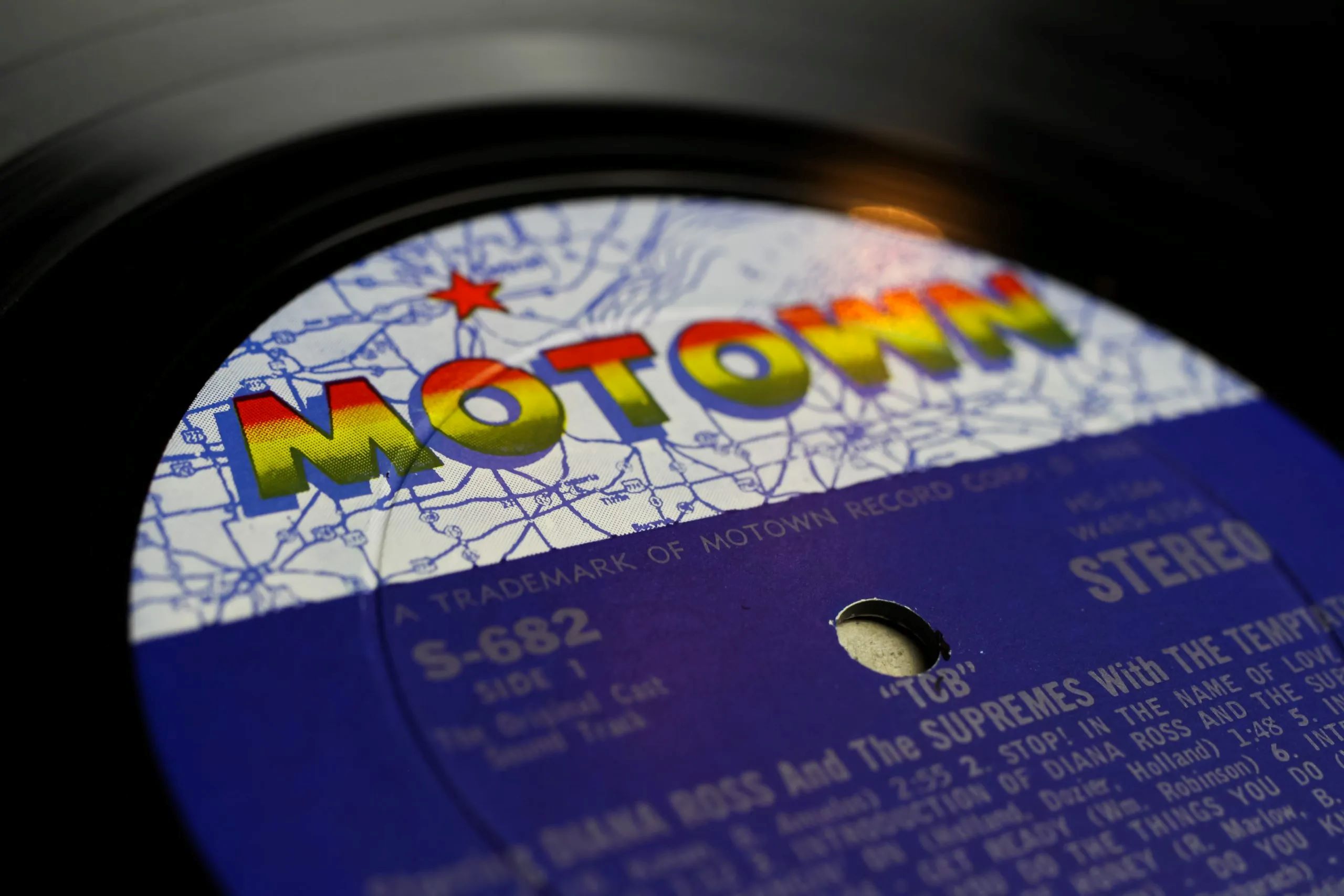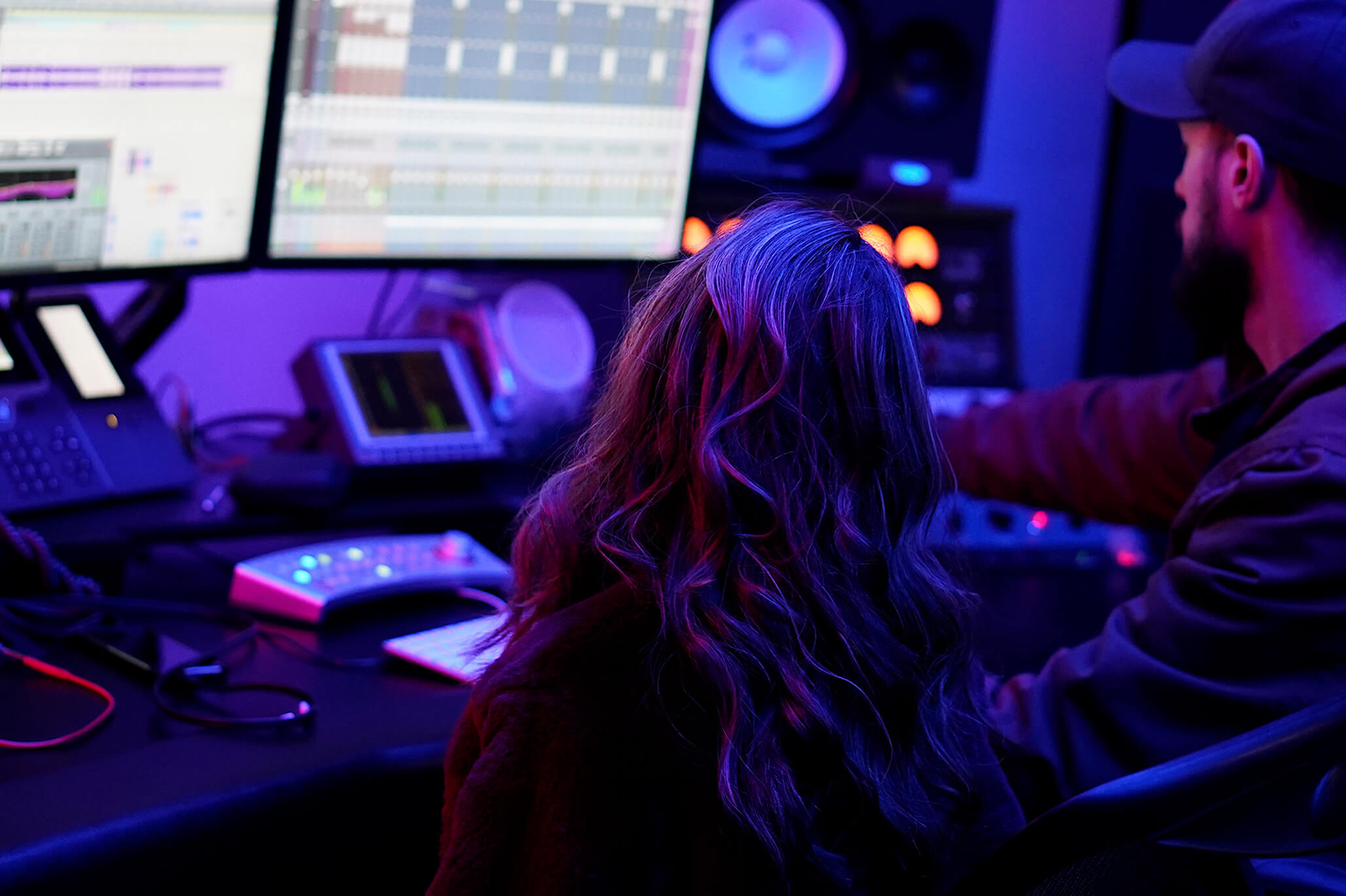Home>Production & Technology>Record Label>How To Find A Record Label


Record Label
How To Find A Record Label
Published: January 24, 2024
Learn how to find a record label that suits your musical style and goals. Discover the best ways to approach record labels and increase your chances of getting signed.
(Many of the links in this article redirect to a specific reviewed product. Your purchase of these products through affiliate links helps to generate commission for AudioLover.com, at no extra cost. Learn more)
Table of Contents
Introduction
So you have a passion for music and dream of making it big in the music industry? One of the key players in the music industry that can help artists realize their dreams is a record label. A record label is a company that specializes in the production, distribution, and promotion of music recordings. They have the resources, connections, and expertise to propel artists to success.
However, finding and securing a record label deal is not an easy task. The music industry is highly competitive and saturated with talented artists. That’s why it’s crucial to know how to navigate the landscape and increase your chances of getting noticed by record labels.
In this article, we will guide you through the process of finding a record label that aligns with your musical style and goals. We will explore strategies and tips for researching, networking, creating a demo, submitting your music, and negotiating contracts. Additionally, we will discuss the importance of building an online presence and promoting yourself as an artist.
Whether you’re a solo artist or part of a band, the information and advice provided here will serve as a valuable roadmap on your journey to securing a record label deal. So, let’s dive in and discover how to find a record label that can help turn your musical aspirations into reality.
Understanding Record Labels
Before diving into the process of finding a record label, it’s important to have a clear understanding of what record labels are and how they operate. Record labels are companies that specialize in all aspects of the music business, from discovering and signing new artists to producing, distributing, and promoting their music.
Record labels can be independent or part of a larger music conglomerate, and they range in size and genre focus. Some labels may specialize in specific genres like rock, pop, hip-hop, or country, while others may have a broader scope and cater to various genres.
Record labels typically offer artists several key services. First and foremost, they provide financial backing for the creation and production of an artist’s music. This includes covering expenses such as recording studio time, hiring musicians, and marketing efforts.
Additionally, record labels have well-established networks and connections within the music industry. They can leverage these relationships to secure collaborations, licensing opportunities, and performance slots for their artists. This support system can greatly enhance an artist’s visibility and career prospects.
Furthermore, record labels handle the distribution and promotion of an artist’s music. They work closely with streaming platforms, radio stations, and other channels to ensure wide exposure and accessibility for the artist’s music. They also create marketing and publicity campaigns to generate buzz around the artist’s releases.
It’s worth noting that signing with a record label involves entering into a contractual agreement. This agreement outlines the rights, responsibilities, and financial terms between the artist and the label. It’s essential for artists to carefully review and negotiate contracts to ensure they are getting a fair deal.
Understanding the role and functions of record labels is crucial as you embark on your journey to find the right label for you. It will help you set realistic expectations, make informed decisions, and navigate the music industry more effectively.
Researching Record Labels
When it comes to finding the right record label for your music, thorough research is key. By researching record labels, you can identify those that align with your musical style, values, and career goals. Here are some steps to help you effectively research record labels:
- Identify your genre: Start by identifying the genre or genres that best represent your music. This will help narrow down your search and target record labels that specialize in your genre.
- Make a list: Create a list of record labels that you believe could be a good fit for your music. Include both major labels and independent labels. Online music directories, industry publications, and recommendations from fellow musicians can be valuable resources for finding record labels.
- Study the labels: Dive deeper into each record label on your list. Visit their websites, read about their history, mission, and current roster of artists. Look for labels that have a track record of success and a reputation for artist development. Consider the size, location, and resources of the label and determine if it aligns with your career goals.
- Explore the artists: Look at the artists currently signed to the record labels you are interested in. Listen to their music, watch their videos, and follow them on social media. Assess if the artists have a similar sound or aesthetic to your own. This will give you a sense of the label’s overall direction and potential fit for your music.
- Check out their distribution: See how the record labels distribute their music. Are they aligned with major streaming platforms and digital stores? Do they have relationships with physical distribution companies? Understanding their distribution strategies will give you an idea of how they reach their audience and how your music may be distributed if you sign with them.
- Look for success stories: Research the success stories of artists who have been signed to the record labels you are interested in. Look for artists who have achieved commercial success, critical acclaim, or both. This will give you an indication of the label’s ability to nurture and promote talent.
- Consider the label’s values: Pay attention to the values and ethos of the record labels you are considering. Do they prioritize artistic integrity, diversity, or social impact? Finding a label that aligns with your values can lead to a more fulfilling and mutually beneficial partnership.
Remember, thorough research is essential in finding record labels that are the right fit for your music career. It will help you make informed decisions and increase your chances of securing a record label deal that aligns with your artistic vision and long-term goals.
Networking and Building Connections
In the music industry, building connections and networking can play a vital role in finding the right record label. Here are some strategies to help you effectively network and build connections:
- Attend music industry events: Look for local music conferences, showcases, and workshops where you can meet industry professionals, including representatives from record labels. Networking events provide opportunities to showcase your talent, make valuable connections, and gain insights from industry experts.
- Join music organizations and communities: Become a member of music organizations, such as songwriter associations, artist collectives, or industry-specific groups. These organizations often host events, workshops, and networking opportunities that can connect you with fellow musicians and industry professionals.
- Utilize social media: Social media platforms like Instagram, Twitter, and LinkedIn can serve as powerful tools for networking. Connect with other artists, producers, managers, and industry professionals. Engage with their content, share your music, and build authentic relationships online.
- Collaborate with other artists: Collaborating with other artists can open doors to new opportunities. By working together, you can cross-promote each other’s music and introduce each other to your respective networks. Collaborations can also demonstrate your versatility and ability to work well with others.
- Reach out to industry professionals: Research and reach out to A&R representatives, managers, and industry professionals who work closely with record labels. Introduce yourself, share your music, and express your interest in finding the right record label. Personalized and professional emails can help you initiate conversations and build relationships.
- Build a strong online presence: Establish a professional website and maintain active profiles on social media and music platforms. Share your music, engage with your audience, and connect with other artists and industry professionals. Having a strong online presence can make you more discoverable and increase your chances of catching the attention of record label scouts.
- Attend industry showcases: Keep an eye out for industry showcases or talent competitions where record label representatives are in attendance. These events often provide an opportunity to perform in front of industry professionals and get noticed.
Remember, networking is all about building genuine connections and fostering relationships. Approach networking with sincerity, respect, and professionalism. The music industry is highly collaborative, and by building a strong network, you increase your chances of finding the right record label and opening doors to potential opportunities.
Creating a Demo
When it comes to showcasing your talent to record labels, having a high-quality demo is essential. A demo is a sample of your music that highlights your talent, style, and potential. Here are some tips for creating an impressive demo:
- Select your best songs: Choose a selection of your best songs that represent your musical style and showcase your versatility. Pick tracks that have strong melodies, engaging lyrics, and polished production.
- Invest in quality recording: Ensure that your demo is well-produced, with clear and professional sound quality. If you have the resources, consider working with a reputable recording studio to enhance the overall production value of your tracks.
- Pay attention to song order: Arrange your songs in a strategic order that flows well and captures the listener’s attention from start to finish. Begin with a strong and memorable track to leave a lasting impression.
- Showcase your vocal and instrumental skills: Highlight your vocal abilities and your instrumental skills if applicable. Showcase the range and power of your voice, and demonstrate your proficiency on your instrument(s) of choice.
- Keep it concise: Aim for a demo that is around 3-5 songs or 10-15 minutes in length. This allows the listener to get a sense of your musical style without overwhelming them with too much content.
- Include a brief bio: Along with your demo, provide a short and concise bio that highlights your musical background, achievements, and notable performances. This gives the record label a glimpse into your journey as an artist.
- Create polished packaging and artwork: Pay attention to the aesthetic presentation of your demo. Design professional artwork and packaging that reflects your musical style and attention to detail.
- Include contact information: Ensure that your demo includes your contact information, including your name, email address, phone number, and links to your website or social media profiles. This makes it easy for record labels to reach out to you.
- Get feedback: Before submitting your demo to record labels, seek feedback from trusted friends, musicians, or industry professionals. They can provide valuable insights and help you refine your tracks and presentation.
Remember, your demo is your opportunity to make a strong first impression on record labels. Take the time to create a high-quality and compelling demo that showcases your talent and potential as an artist.
Submitting Your Demo
Once you have created a stellar demo, the next step is to submit it to record labels. Here are some tips to consider when submitting your demo:
- Research submission guidelines: Before sending your demo, research each record label’s submission guidelines. Some labels may prefer physical CDs, while others may accept digital submissions. Ensure that you follow their specific instructions to increase your chances of being considered.
- Personalize your submission: Take the time to personalize your submission to each record label. Address the recipient by name, mention why you believe your music would be a good fit for their label, and show genuine interest in their work and artists.
- Include a professional cover letter: Along with your demo, include a well-crafted cover letter. Keep it concise and highlight key points such as your musical background, achievements, and your passion for working with the label.
- Focus on quality over quantity: Rather than mass-submitting your demo to numerous labels, focus on quality over quantity. Research and target labels that are the best fit for your music and spend time crafting personalized submissions for each one.
- Follow up: After submitting your demo, consider following up with the record label to confirm receipt and express your gratitude for their time. However, be mindful not to pester or spam the label with excessive follow-ups.
- Be patient: It’s important to be patient as record labels receive numerous submissions and it may take time for them to review and respond to yours. While waiting for a response, continue to focus on creating and promoting your music.
- Explore alternative avenues: In addition to traditional record label submissions, consider exploring alternative avenues such as music contests, showcases, or music licensing opportunities. These can serve as additional platforms to get exposure and potentially catch the attention of label representatives.
- Consider professional guidance: If you are struggling to navigate the submission process or want additional support, consider seeking guidance from industry professionals or music consultants who can provide valuable insights and connections.
Remember, the submission process requires patience and persistence. Be proactive, professional, and diligent in your efforts to maximize your chances of catching the attention of record label representatives.
Contracts and Negotiations
Once you have successfully attracted the attention of a record label and they express interest in signing you, it’s crucial to understand the contract terms and engage in negotiations. Here are some important points to consider during the contract and negotiation process:
- Seek legal advice: Contracts can be complex, and it’s crucial to have a qualified entertainment lawyer review the contract before signing. They can help you understand the terms, identify any potential issues, and ensure that your rights and interests are protected.
- Understand the terms: Take the time to thoroughly read and understand all the terms outlined in the contract, including the duration, royalty rates, advances, recoupment terms, ownership of masters, and any additional clauses related to promotional efforts or creative control.
- Negotiate favorable terms: If certain contract terms are not satisfactory or do not align with your goals, engage in negotiations with the record label. This can involve discussing and proposing modifications or additions to the contract terms. Be prepared to support your requests with valid arguments and consider seeking advice from your lawyer or experienced professionals in the music industry.
- Consider the bigger picture: While negotiating the contract, keep in mind the long-term impact of your decisions. Consider how the deal aligns with your artistic vision, career aspirations, and potential for growth. It’s not just about the short-term gains but also the opportunities and support the label can provide in the long run.
- Review the marketing and promotional plans: Ensure that the contract includes clear provisions for marketing and promotion. Understand how the label plans to market and distribute your music, including strategies for radio play, digital marketing, touring, and promotional campaigns. Discuss the budget and resources allocated for your project.
- Protect your creative integrity: Discuss any clauses related to creative control. Maintain a balance between the label’s guidance and your artistic vision. Seek clarity on matters such as song selection, album artwork, and production decisions to ensure you are comfortable with the label’s involvement in your creative process.
- Consider the financial aspect: Study the royalty structure, advances, and recoupment terms in the contract. Understand how you will be compensated and how expenses will be recouped. Clarify how royalties are calculated, whether they are based on physical sales, digital streaming, or other revenue streams.
- Be prepared to walk away: While it’s exciting to have a record label offer on the table, be prepared to walk away if the contract terms are not favorable or do not align with your goals. It’s better to wait for the right deal than to rush into an agreement that may hinder your creative or financial potential.
Remember, contracts and negotiations can be complex, and it’s crucial to seek legal advice and thoroughly understand all aspects of the agreement. Approach negotiations with transparency, clarity, and a focus on reaching a mutually beneficial agreement with the record label.
Building an Online Presence
In today’s digital age, having a strong online presence is essential for musicians looking to get noticed by record labels. Building an online presence allows you to connect with a wider audience, showcase your talent, and attract the attention of industry professionals. Here are some strategies to help you build a compelling online presence:
- Create a professional website: Set up a dedicated website where you can showcase your music, share your story, and provide information about upcoming performances or releases. Ensure that your website is visually appealing, user-friendly, and responsive across different devices.
- Establish social media profiles: Choose social media platforms that align with your target audience and maintain active and engaging profiles on those platforms. Share updates about your music, behind-the-scenes content, and interact with your fans. Platforms like Instagram, Twitter, Facebook, and YouTube can be powerful tools to build a following and attract industry attention.
- Consistently release content: Regularly release new music, videos, or other forms of content to keep your audience engaged and attract new listeners. Focus on quality and ensure that your content reflects your artistic vision and style.
- Engage with your audience: Reply to comments, messages, and direct interactions with your audience. Encourage conversation, ask for feedback, and build a loyal fan base by showing genuine interest and appreciation for your supporters.
- Collaborate with influencers: Collaborating with influential individuals in your niche can help expand your reach. Consider collaborating with other musicians, content creators, or industry influencers who have a significant following and can introduce you to a new audience.
- Utilize video content: Videos are a powerful medium for music promotion. Create high-quality music videos, behind-the-scenes footage, live performances, or acoustic sessions to engage your audience and showcase your talent visually.
- Optimize for search engines: Make your online presence discoverable by optimizing your website and social media profiles for search engines. Research keywords relevant to your music and incorporate them naturally into your content and metadata to improve your visibility in search engine results.
- Engage in music blogging and playlisting: Seek opportunities to be featured on music blogs or included in curated playlists. Submit your music to relevant platforms, reach out to blog owners, and engage with playlist curators who have a strong following in your genre.
- Showcase your live performances: Share videos or live recordings of your performances to demonstrate your stage presence and ability to captivate audiences. This can help attract the attention of record labels, who are often keen to sign artists with strong live performance skills.
- Build an email list: Encourage your audience to join your email list so that you can keep them updated on your latest releases, shows, and other news. Email marketing can be a powerful way to engage directly with your fans and nurture a dedicated following.
Remember, building an online presence takes time and consistent effort. Be authentic, engaging, and proactive in sharing your music and connecting with your audience. A strong online presence can increase your visibility and catch the attention of record labels searching for talented artists.
Promoting Yourself
As an artist, promoting yourself is a crucial aspect of your music career. Effective self-promotion can help you increase your visibility, attract a larger audience, and catch the attention of record labels. Here are some strategies to promote yourself effectively:
- Create a compelling brand: Develop a unique and consistent brand identity that reflects your music, personality, and values. This includes your visual aesthetic, logo, and overall image. A strong and cohesive brand can help you stand out from the crowd and make a lasting impression.
- Utilize social media platforms: Maintain an active presence on social media platforms relevant to your target audience. Engage with your followers, share updates about your music, behind-the-scenes content, and upcoming shows. Be strategic in your use of social media to build a loyal fanbase and attract industry attention.
- Collaborate with other artists: Collaborating with other musicians or content creators can expand your reach and introduce you to a new audience. Look for opportunities to collaborate on songs, performances, or joint marketing campaigns that align with your musical style and vision.
- Utilize streaming platforms: Leverage the power of streaming platforms such as Spotify, Apple Music, and SoundCloud to make your music easily accessible to a global audience. Focus on optimizing your profile, creating engaging playlists, and promoting your music on these platforms.
- Engage with music blogs and media outlets: Research and reach out to music blogs, online publications, or local media outlets that cover your genre. Submit your music for review, interview opportunities, or features. Getting featured in media outlets can significantly increase your visibility and credibility.
- Participate in music contests: Consider entering local or online music contests that can provide exposure and opportunities to showcase your talent. Win or lose, these contests allow you to connect with other musicians, industry professionals, and potentially gain valuable feedback.
- Network at industry events: Attend music industry events, conferences, and showcases where you can connect with industry professionals, fellow musicians, and potential collaborators. Actively network, distribute your music, and make meaningful connections that can lead to future opportunities.
- Build a press kit: Create a professional press kit that includes your biography, high-quality promotional photos, press releases, and links to your music. A well-curated press kit can make it easier for media outlets, promoters, and record labels to learn more about you and your music.
- Perform live: Showcase your talent by booking gigs at local venues, open mic nights, or events. Performing live allows you to connect with your audience on a personal level, build a dedicated fan base, and attract the attention of industry professionals scouting for talented artists.
- Get creative with content: Think outside the box and create engaging content beyond just your music. This could include behind-the-scenes videos, exclusive acoustic performances, Q&A sessions with fans, or collaborations with visual artists. The more unique and engaging your content, the more likely it is to be shared and attract new fans.
Remember, self-promotion requires consistency, creativity, and an ongoing effort to build your brand and expand your reach. Be proactive, be genuine, and adapt your promotional strategies to effectively connect with your audience and industry professionals.
Conclusion
Securing a record label is a significant milestone for any aspiring musician, and with the right approach, you can increase your chances of finding the perfect match for your music career. The journey to finding a record label requires a combination of talent, hard work, research, networking, and self-promotion.
Understanding the role and functions of record labels is crucial, as it sets the foundation for your search. Thoroughly researching and identifying record labels that align with your musical style and goals can help you narrow down your options and target the right ones. Building connections through networking, both online and in-person, can open doors and create valuable opportunities for collaboration and exposure.
Creating a high-quality demo that showcases your talent is essential for capturing the attention of record label scouts. It’s important to carefully select your best songs, invest in professional recording, and pay attention to packaging and presentation.
Submitting your demo to record labels requires a personalized approach and attention to submission guidelines. The process may take time, and it’s important to be patient and follow up appropriately. In the event that an offer is extended, understanding contract terms and confidently engaging in negotiations is essential to protect your interests and ensure a mutually beneficial partnership.
While pursuing a record label deal, building and maintaining a strong online presence is crucial. Creating a compelling brand, utilizing social media, and engaging with your audience can help expand your reach and attract the attention of both fans and industry professionals. Self-promotion plays a significant role in gaining visibility, so it’s important to actively promote yourself through collaborations, live performances, collaborations with influencers, and participation in industry events.
In conclusion, finding a record label requires a combination of talent, research, networking, self-promotion, and perseverance. By understanding the music industry, creating outstanding music, building connections, and effectively promoting yourself, you can increase your chances of catching the attention of the right record label and taking your music career to new heights.











